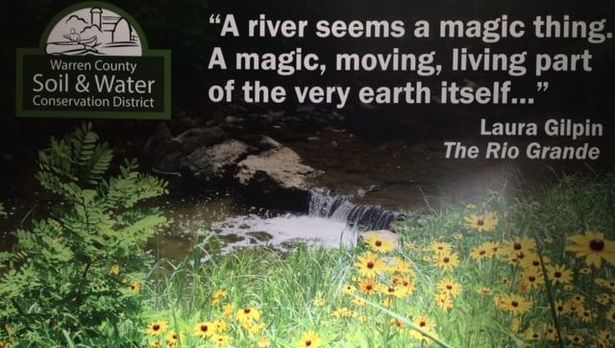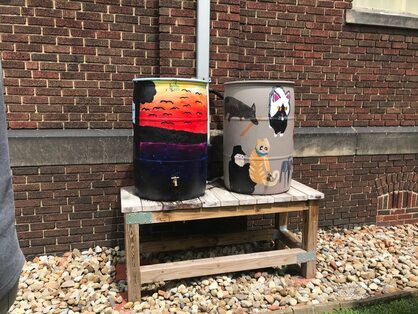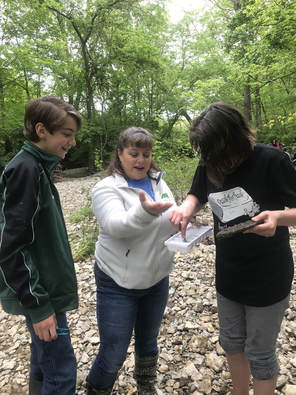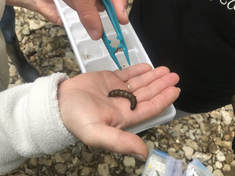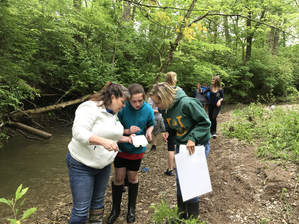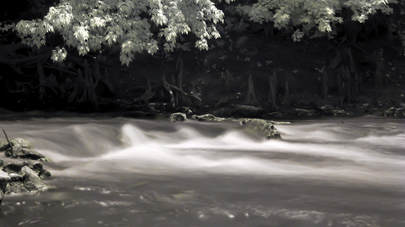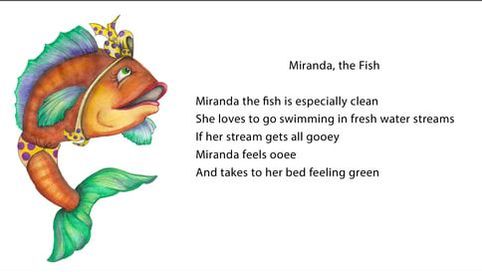|
Drinking water comes from streams, rivers lakes and ground water (aquifers). Protecting these water sources is key to sustaining safe drinking water supplies. When the water in our rivers, lakes and oceans becomes polluted, it endangers wildlife and people. Pollution makes our drinking water unsafe and threatens the waters where we enjoy swimming, fishing and recreational activities. For additional "Water Topics", EPA research supports water protection efforts under the Clean Water Act and Safe Drinking Water Act. THOMAS C. SPELLMIRE WATER CONSERVATION TRAILER Protect Sources of Drinking Water Roles in Source Water Protection Protecting source water is everyone's responsibility. Everyone has a role, including:
Install a Rain Barrel: Store rainwater from rooftops that can be used on lawns and gardens. Stormwater includes rainwater that runs off hard surfaces and carries pollution to our streams. Individuals can further take action to protect their water, for example by:
Water quality is commonly determined by sampling a stream for macroinvertebrates.
The Little Miami River watershed is located in southwestern Ohio. It drains a total of 1,758 square miles and flows through all or part of 11 counties. Major municipalities partially or fully in the watershed include Xenia, Beavercreek, Wilmington, and Cincinnati and some of its suburbs. See further Ohio EPA studies on the Little Miami River: http://epa.ohio.gov/dsw/tmdl/ LittleMiamiRiver.aspx http://epa.ohio.gov/portals/35/tmdl/Lower_LMR_Factsheet.pdf Exploring Watershed Geography USGS (U.S. Geological Survey) provides science about the natural hazards that threaten lives and livelihoods; the water, energy, minerals, and other natural resources we rely on; the health of our ecosystems and environment; and the impacts of climate and land-use change. Their scientists develop new methods and tools to supply timely, relevant, and useful information about the Earth and its processes. www.usgs.gov/ Native Ohio Tree Species Suitable for Planting within 1,000 Feet of State Wild, Scenic and Recreational Rivers https://docs.wixstatic.com/ugd/19e2af_934d025960a743c6bb2987ae13cbccbe.pdf The most effective way to counter this increase in impervious surface is to protect and restore the riparian corridor or riparian buffer. Trees and wetlands play an important role in slowing the flow of water and filtering out the impurities prior to the run off entering the river. www.epa.gov/sourcewaterprotection/what-you-can-do-protect-source-water Meet Fred's Friend, Miranda!
0 Comments
|
Details
Author:
|
||||||
|
|
Contact:PHONE: (513) 695 - 1337
EMAIL: wcswcd@gmail.com HOURS: Monday - Friday 7:30am - 4:00pm (except holidays) Connect:Warren County Soil & Water Conservation District Copyright © 2016
Warren SWCD Privacy Notice. Emails are serviced by Constant Contact. Constant Contact's Privacy Notice. |
